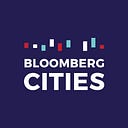When it comes to “open innovation,” cities have the advantage; here’s how they can run with it
By Vijay Kumar
I want to throw a curveball into conventional thinking — that the public sector is always a step or two behind the private sector when it comes to sparking new ideas for solving tough problems.
In fact, it’s increasingly the public sector that holds the advantage.
This is especially the case when it comes to “open innovation” — an idea that moves away from the notion that R&D departments have all the answers and toward an understanding that some of the best ideas come from customers, employees, and other non-innovation experts. Henry Chesbrough of the University of California Berkeley wrote the book on this in 2003, and, ever since then, companies have tried — and often struggled — to take this approach. They tend to trip over concerns about intellectual property: When you share an idea openly in the business world, you risk someone else stealing it.
But this isn’t a concern in the public sector — and particularly not in cities. In fact, it’s just the opposite. Most mayors love sharing ideas with each other, and are flattered, not bothered, when other cities steal their solutions. And when it comes to generating new ideas — the heart of open innovation — mayors are increasingly taking a bottom-up approach and finding new ways to listen to their citizens. They understand that the more open and inclusive they are in engaging the public when developing new policies and programs, the better the results will be.
[Get the latest innovation news from Bloomberg Cities! Subscribe to SPARK.]
I saw this firsthand recently in New Rochelle, N.Y., one of 35 Champion Cities in this year’s Bloomberg Philanthropies Mayors Challenge. The city is working on a new way to solve an old problem faced by local governments everywhere. When city planners or real estate developers propose new projects — and lately, there have been a lot of those in New Rochelle — only a handful of residents show up for public hearings. And those that do show up usually go home angry because their feedback too often comes too late to change the project.
Like all of the Champion Cities, New Rochelle received $100,000 in seed money and extensive coaching in how to use design tools like prototyping to test, learn, and adapt an idea. And that idea was to engage more citizens in the development-approval process — creating more collaborative and compelling experiences than the traditional public hearing. With a virtual reality headset, for example, citizens could see a vivid simulation of what a development site, park, or streetscape might look like after construction. Or through augmented reality, they could hold up their smartphones to see how proposed changes might alter the scene in front of them.
Importantly, New Rochelle’s approach is about much more than VR or AR technology. It’s also about engaging more citizens in city planning — and doing it at an earlier stage, where their feedback can actually make a difference.
On a Saturday morning, project leaders took their virtual reality goggles and other gadgets to a popular farmers market and asked residents to take a break from their shopping to offer ideas on proposed changes to a city park. In one afternoon, they engaged about 60 people — far more than they ever could have expected to reach at a typical city planning meeting. Later, they loaded the devices into a U-Haul truck and reached more people at summer street festivals. These exchanges were fun, productive, and proactive — the opposite of what those typical planning meetings are like, and exactly how open innovation is supposed to work.
I’m encouraged by the work out of New Rochelle and also mindful of the fact that more cities need to follow their lead and exploit their inherent advantages. Governments may not have R&D labs, but they are prone to an “expert culture” that develops policies and programs for citizens rather than with them. That attitude is often cemented in place by procurement rules, public hearing protocols, and other habits and assumptions that can be hard to change.
And that’s what I love about the Mayors Challenge. It gives cities an incentive to overcome those constraints and embrace their greatest asset when it comes to innovation: their people.
Vijay Kumar is a professor at the Illinois Institute of Technology’s Institute of Design, a consultant and advisor to businesses and governments, and is a member of the Mayors Challenge selection committee.
Winners of the Bloomberg Philanthropies Mayors Challenge will be announced next month at CityLab Detroit.
